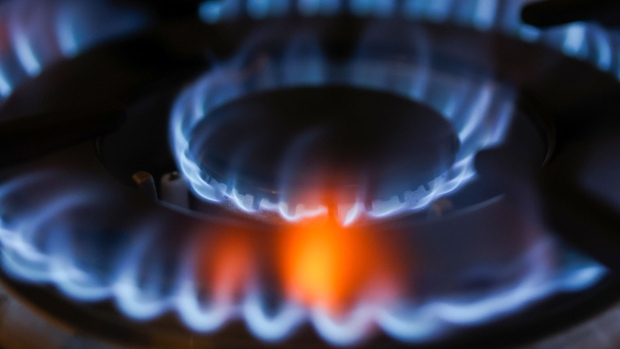Oct 21, 2021
EU Leaders Quash Calls for Fast Fixes to Address Energy Crisis
, Bloomberg News

(Bloomberg) -- Several European Union leaders warned against hasty intervention to address the unprecedented energy crisis, suggesting that pleas for immediate actions from some of the bloc’s poorer countries would go unheeded.
Record power and gas prices are the first topic for EU leaders in their two-day summit that started on Thursday in Brussels, but the bloc’s ability to act is extremely limited. While most countries have already cut taxes or approved subsidies to help households and companies, some want new measures on emissions, power and gas or seek scaling down ambitious climate reforms.
“We need to distinguish significantly from the challenge we face in the fight on climate,” German Chancellor Angela Merkel told reporters before the meeting. “I think that we should react in a level-headed way.”
The energy crunch is exacerbating divisions among member states at a time when the 27 nations are starting crucial talks about how to decarbonize their economies under the Green Deal. The EU wants to lead the global fight against climate change and set an example for other major emitters such as the U.S. and China, but this summit will underline how far apart the members are in agreeing on their own energy transition.
The current crisis is making things worse in the short term, pitting countries in the south and the east of Europe against the wealthier -- and often more climate-ambitious -- members in the north, who argue the hike is temporary and has nothing to do with European green policies. The 27-nation EU toughened its 2030 greenhouse gas-reduction goal to at least 55% from 1990 levels and aims for net zero emissions by the middle of this century.
With electricity bills at risk of double-digit increases, the EU’s plans to ban new fossil-fuel cars by 2035 and put a carbon price on dirty home heating are an even tougher sell. The European Commission’s proposal to extend emissions trading to heating and transport fuels has become the most criticized element of the July package to enact the new climate target.
The EU’s existing carbon market, the Emissions Trading System, is also blamed by countries including Poland for aggravating the energy crisis. The government in Warsaw wants to restrict access to the market to some financial investors to curb speculation and prevent further increase of pollution costs. Such calls were criticized by Finland, which bets on investment in clean energy as the best long-term solution.
“We must not draw hasty conclusions, which could wreak havoc on the Emissions Trading System or otherwise worsen the situation,” Finnish Prime Minister Sanna Marin told reporters. “The big conclusion for the future needs to be more self-sufficiency and more renewables.”
The energy crunch comes amid rising recovery-linked demand and limited supply from Russia and Norway, Europe’s two biggest providers of natural gas. The bloc’s gas reserves are 77% full now, up from 72% two weeks ago but still at a 10-year low, according to a note seen by Bloomberg News that was distributed by the EU to member states ahead of next week’s meeting of energy ministers.
Polish Prime Minister Mateusz Morawiecki on Thursday warned against “the politics of gas blackmail by Russia” which he signaled could be aimed at pressuring the EU to enable the operation of the Nord Stream 2 pipeline. The new gas link between Russia and Germany, which has long divided member states, is set to be one of many thorny issues at the summit.
The Greek government estimated that the crisis will cost consumers an additional 100 billion euros ($117 billion) in the 2021-2022 winter season and together with France, Spain, Romania and the Czech Republic called for new measures including joint purchases of natural gas and an overhaul of power markets.
The energy crunch will also underscore differences over the role of nuclear policy in the European transition to a clean economy. While the EU leaves the right to decide on energy sources in the hands of individual member states, it can influence their choices by regulations on emissions and green investment.
A group of countries led by France and the Czech Republic will be pushing for assurances by the leaders that nuclear energy has a place in the future, according to three EU diplomats with knowledge of the matter. Another coalition of nations, headed by Poland, will seek confirmation that natural gas has a bridge role in the energy transition.
With energy being one of the most politically sensitive issues, EU leaders hope Thursday’s summit will at least be a signal to the voters that governments are listening. The bloc’s ministers are scheduled to follow up on Oct. 26, when they gather at an emergency meeting in Luxembourg. The focus will be on the security of gas supply and ways to reinforce it ahead of the winter, according to the EU note sent to national governments.
©2021 Bloomberg L.P.


